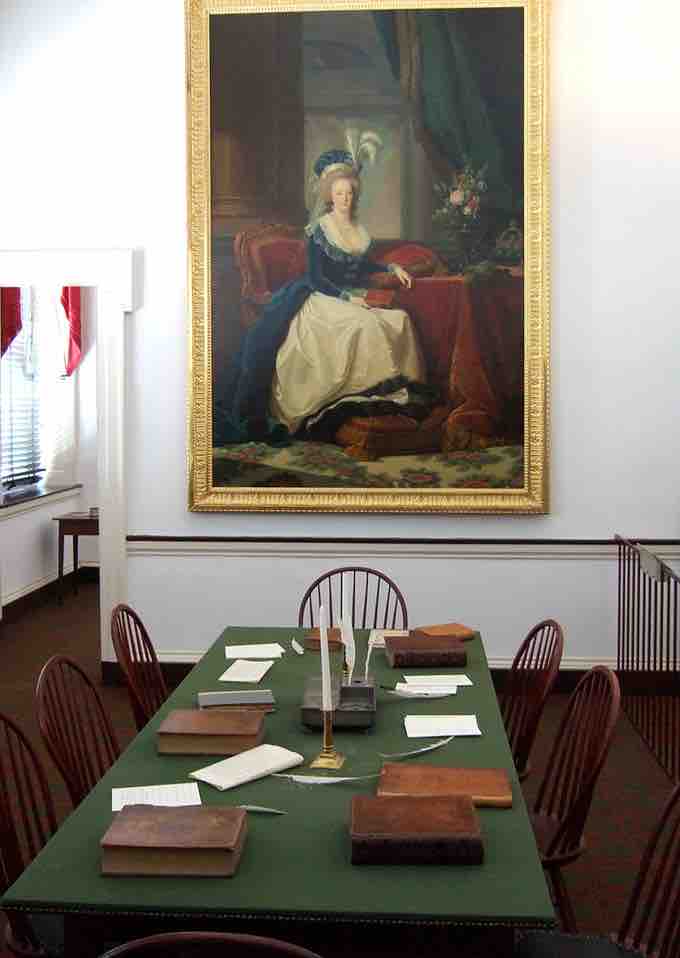Background
Although the Constitution grants no formal, express authority to oversee or investigate the executive or program administration, oversight is implied in Congress's array of enumerated powers. The legislature is authorized to appropriate funds, raise and support armies, provide for and maintain a navy, declare war, provide for organizing and calling forth the national guard, regulate interstate and foreign commerce, establish post offices and post roads, advise and consent on treaties and presidential nominations (Senate), and impeach (House) and try (Senate) the President, Vice President, and civil officers for treason, bribery, or other high crimes and misdemeanors. Reinforcing these powers is Congress's broad authority to make all laws that will be necessary to carry out execution the foregoing powers, all other powers vested by this Constitution in the government, or in any Department or Officer in the government.
The authority to oversee is derived from these constitutional powers. Congress could not carry them out reasonably or responsibly without knowing what the executive is doing; how programs are being administered, by whom, and at what cost; and whether officials are obeying the law and complying with legislative intent. The Supreme Court has legitimated Congress's investigative power, subject to constitutional safeguards for civil liberties.
Statutes
The necessary and proper clause of the Constitution also allows Congress to enact laws that mandate oversight by its committees, grant relevant authority to itself and its support agencies, and impose specific obligations on the executive to report to or consult with Congress, and even seek its approval for specific actions. Broad oversight mandates exist for the legislature in several significant statutes.
Besides these general powers, numerous statutes direct the executive to furnish information to or consult with Congress. For example, the Government Performance and Results Act of 1993, requires agencies to consult with Congress on their strategic plans and report annually on performance plans, goals, and results. In fact, more than 2,000 reports are submitted each year to Congress by federal departments, agencies, commissions, bureaus, and offices. Inspectors general (IGs), for instance, report their findings about waste, fraud, and abuse. and their recommendations for corrective action, periodically to the agency head and Congress. The IGs are also instructed to immediately issue special reports concerning particularly serious problems to the agency head, who transmits them unaltered to Congress within seven days.
House and Senate Chamber rules also reinforce the oversight function. House and Senate rules, for instance, provide for "special oversight" or "comprehensive policy oversight," respectively, for specified committees over matters that relate to their authorizing jurisdiction. In addition, House rules direct each standing committee to require its subcommittees to conduct oversight or to establish an oversight subcommittee for this purpose. House rules also call for each committee to submit an oversight agenda, listing its prospective oversight topics for the ensuing Congress, to the House Committee on Government Reform, which compiles and prints the agendas.
The House Government Reform Committee and the Senate Governmental Affairs Committee, which have oversight jurisdiction over virtually the entire federal government, are authorized to review and study the operation of government activities to determine their economy and efficiency and to submit recommendations based on GAO reports. In addition, House rules require that the findings and recommendations from the Government Reform Committee be considered by authorizing panels, if presented to them in a timely fashion.
Activities and Avenues
Oversight occurs through a wide variety of congressional activities and avenues. Some of the most publicized are the comparatively rare investigations by select committees into major scandals or into executive branch operations gone awry. Examples include temporary select committee inquiries into: China's acquisition of U.S. nuclear weapons information, in 1999; the Iran-Contra affair, in 1987; intelligence agency abuses, in 1975-1976, and "Watergate," in 1973-1974. The precedent for this kind of oversight goes back two centuries: in 1792, a special House committee investigated the defeat of an Army force by confederated Indian tribes.

Congress Hall Committee Room Marie Antoinette
One of several committee rooms in Congress Hall, in Philadelphia, PA. The room is located on the second floor, on the west side of the building, adjacent to the Senate chamber. The view is looking toward the front of the building. The portrait of Marie Antoinette, by Élisabeth Vigée-Lebrun (1788), was presented as a gift from the French monarch following the American Revolution.